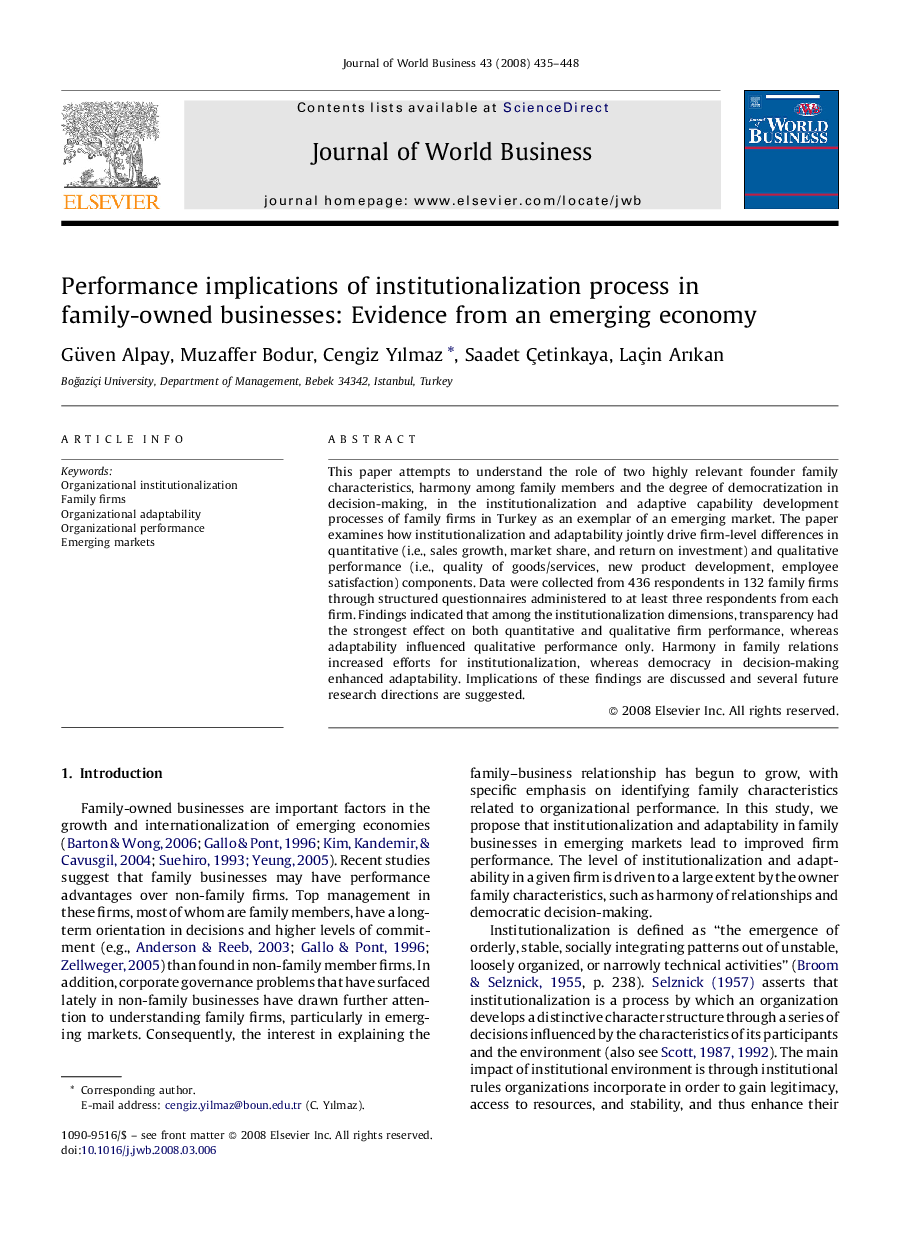| Article ID | Journal | Published Year | Pages | File Type |
|---|---|---|---|---|
| 1003396 | Journal of World Business | 2008 | 14 Pages |
This paper attempts to understand the role of two highly relevant founder family characteristics, harmony among family members and the degree of democratization in decision-making, in the institutionalization and adaptive capability development processes of family firms in Turkey as an exemplar of an emerging market. The paper examines how institutionalization and adaptability jointly drive firm-level differences in quantitative (i.e., sales growth, market share, and return on investment) and qualitative performance (i.e., quality of goods/services, new product development, employee satisfaction) components. Data were collected from 436 respondents in 132 family firms through structured questionnaires administered to at least three respondents from each firm. Findings indicated that among the institutionalization dimensions, transparency had the strongest effect on both quantitative and qualitative firm performance, whereas adaptability influenced qualitative performance only. Harmony in family relations increased efforts for institutionalization, whereas democracy in decision-making enhanced adaptability. Implications of these findings are discussed and several future research directions are suggested.
